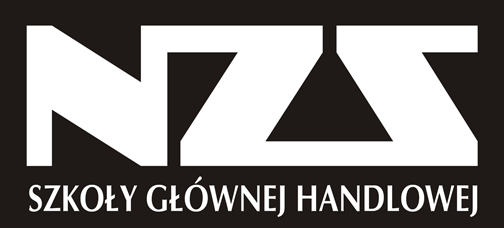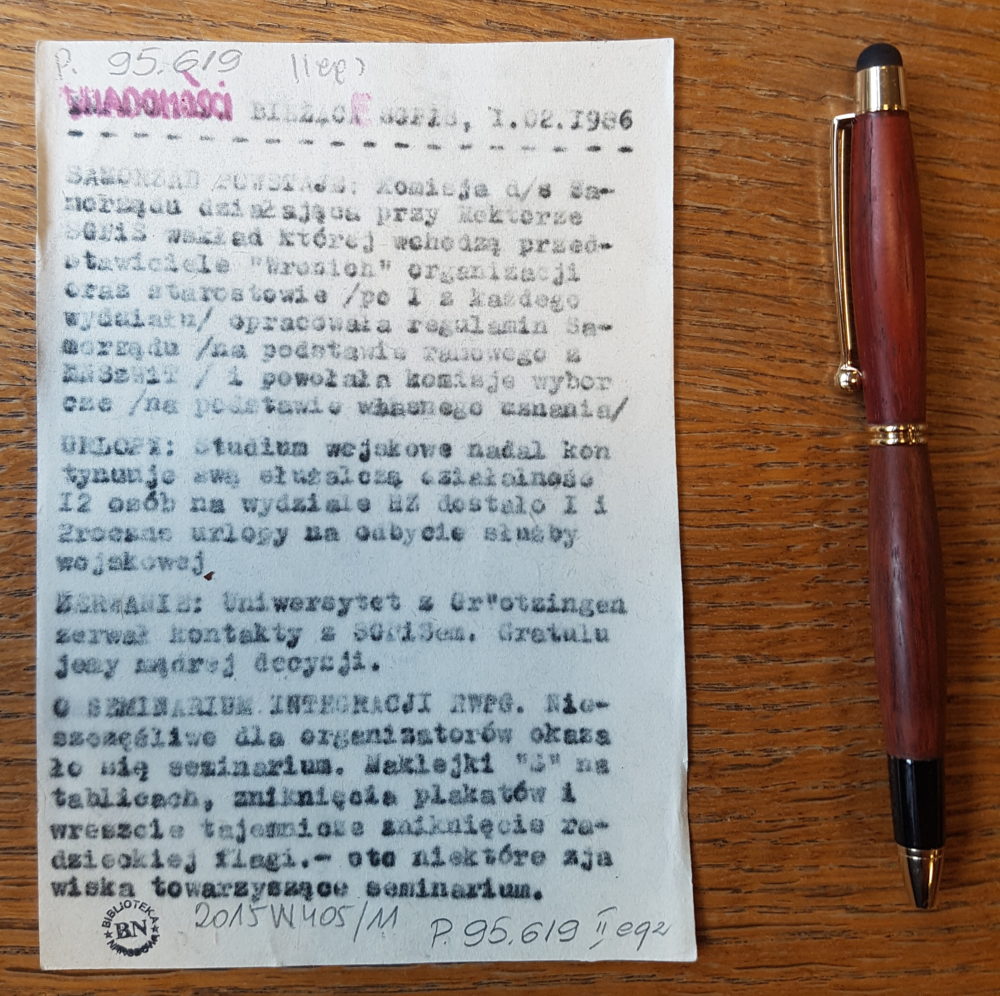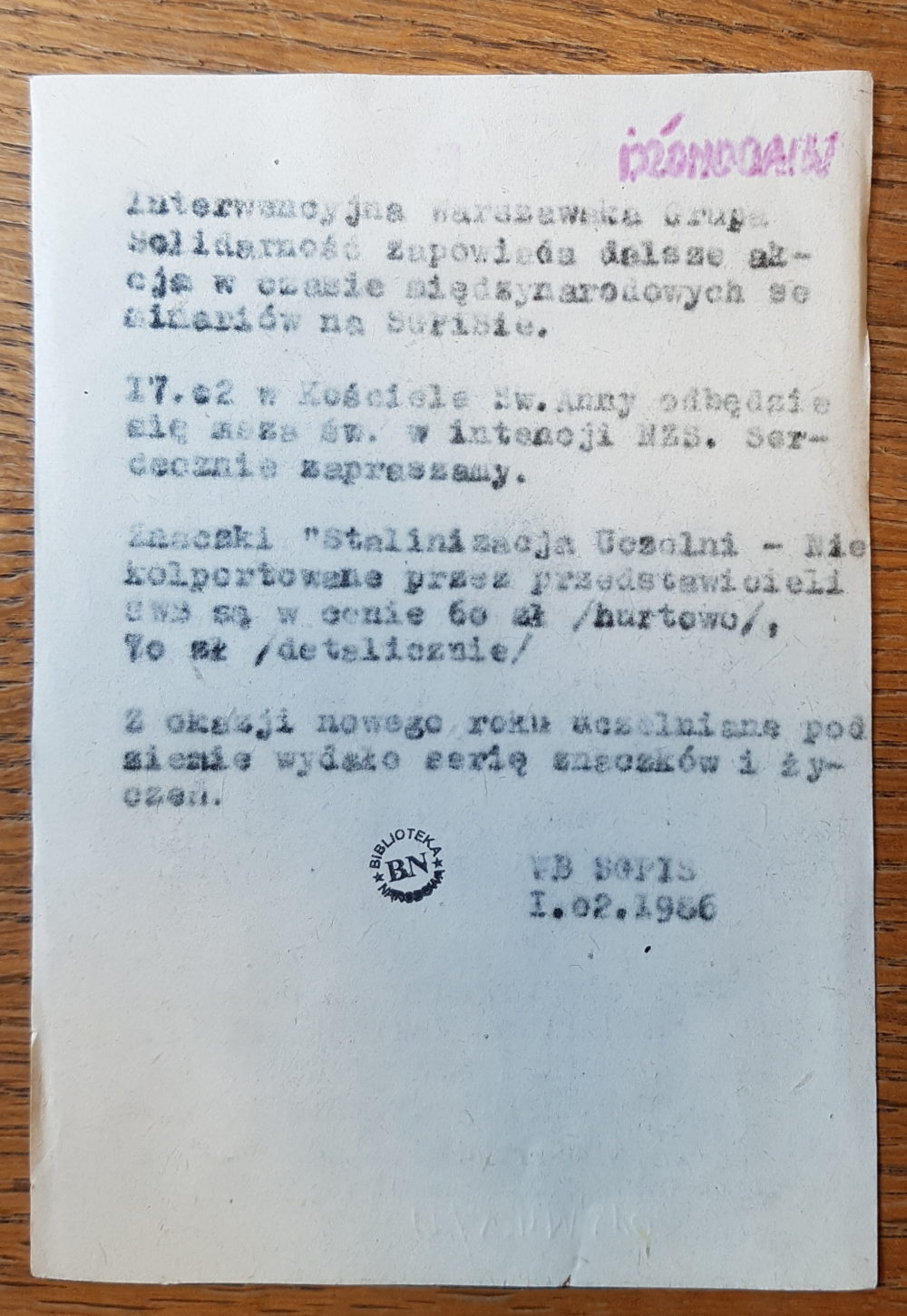
It could be worse
Without in any way downplaying the current crisis of liberal democracy, I just got a reminder that things could be a lot worse. I came across the following 1986 document from the campus affiliate of the Niezależne Zrzeszenie Studentów (Independent Student Society) at the Szkoła Główna Planowania i Statystyki (Main School for Planning and Statistics). The text is quite mundane: announcements that a new, elected student council is being formed, that some new anti-communist stamps are for sale, that a special mass for NZS is scheduled, etc. But note the format: paper so thin that it is translucent, blurry printing, and a size smaller than a ballpoint pen. This is what you can produce when you are operating an illegal organization with few resources, and when discovery of your activities might get you expelled.


I’ve made comparisons between today’s increasingly authoritarian Polish government and the communist Polish People’s Republic, and I continue to believe that we can learn a lot by setting the two alongside each other. But this 1986 document was a useful reality-check for me. Poland has gone much further down the antiliberal path than the US has, but even Poland isn’t close to the oppressiveness of the 1980s, which itself wasn’t remotely as bad as the Stalinist era, which was a vast improvement over the horror of Nazi rule. One might be tempted to evoke a slippery slope metaphor when talking about today’s government, and that’s not entirely unjustified. But political activism is like putting on snow-tires in order to get some traction on that slope; we need to keep in mind that rolling downhill is not inevitable. Moreover, no matter how much we might wish to stand at the summit, let’s not confuse the hillside with the valley.
Historical perspective teaches us to see potential dangers even when they are only just starting to appear. That’s why so many historians are worried and angry nowadays. But historical perspective also offers us a useful psychological survival mechanism, a way to avoid the despair that I’ve seen in so many friends and colleagues recently. Less than five years after the above leaflet was produced, the Polish People’s Republic ceased to exist, NZS was legalized, and SGPiS became the Szkoła Główna Handlowa (which they advertise in English as the “Warsaw School of Economics”). Today, NZS no longer needs to use such surreptitiously produced and distributed leaflets; instead, they communicate about their activities here.